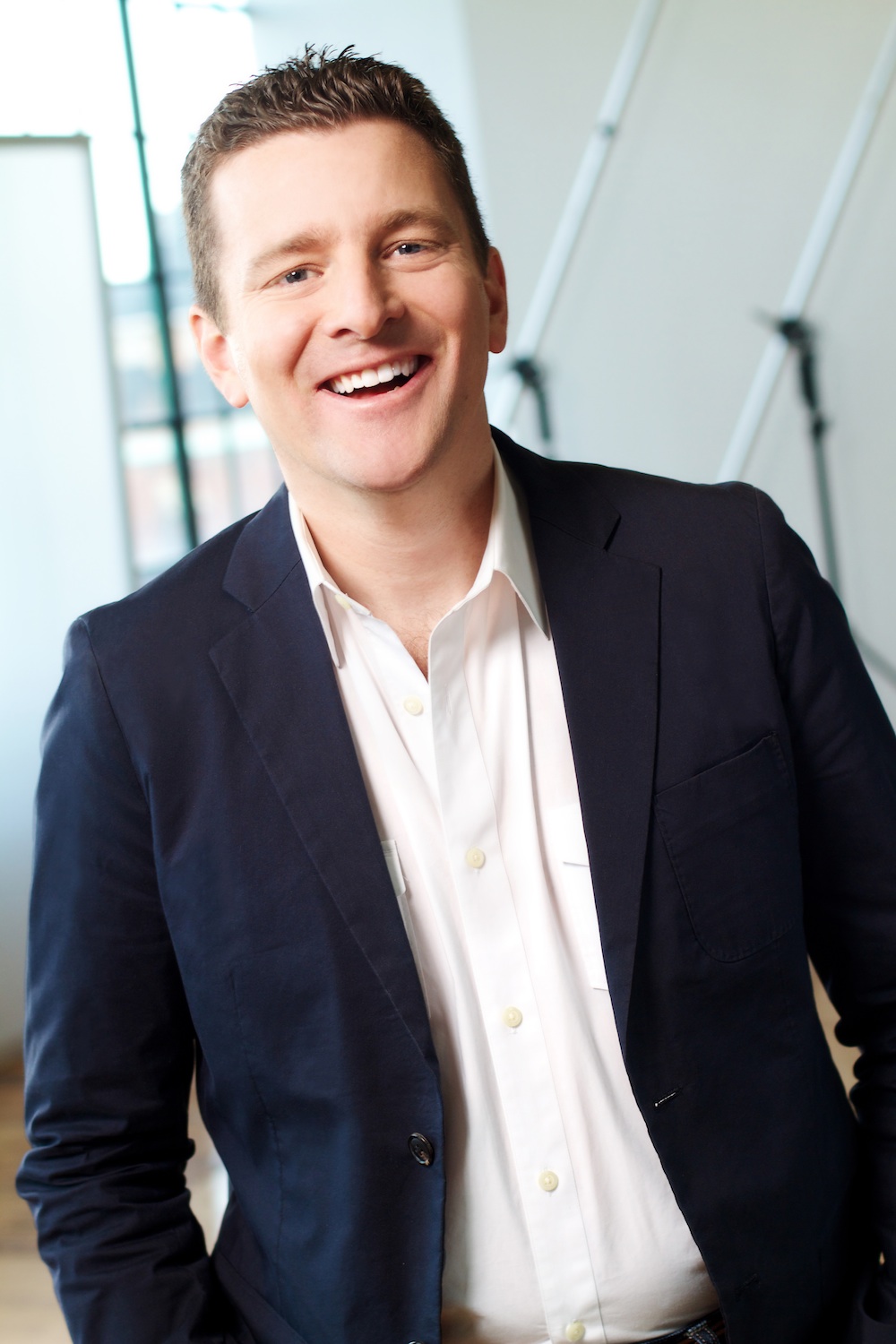
In 5 years, his company ‘Wave’ has signed up nearly 2 million small businesses around the world, and raised $42 million in funding, while building disruptive Fintech tools in payments, accounting, invoicing, payroll and more. To date, customers have trusted Wave to move more than $750 million of their money, and track almost $100 billion of their income and expenses. Kirk Simpson is the co-founder and CEO of Wave, the world’s fastest-growing financial software for small businesses.
You spent three years at the University Of Guelph, and then dropped out to scale up on entrepreneurial pursuits with AdventureLifestyle.com. There are many successful men and women out there who pursue their own business, as opposed to finishing their University degree. What words of advice can you offer a world that expresses “No education, no security, no job, no moving ahead.”
Learning is always a great idea, but university or college aren’t necessarily the best fit for everyone. For me, I saw an opportunity with AdventureLifestyle.com to try something and make discoveries along the way. The education I got by taking on risks, and playing with emerging technologies, is unlike anything I could have learned in a textbook. For me, it was the right path.
Much depends on personality. For some people, a formal education is just a better fit. But it’s not the only option, especially for young people. When you’re in your 20s, you have plenty of time to try something, fail, and recover. If you have a passion you want to chase, why not chase it and see what you learn along the way?
Both paths are valid. At Wave, for example, I’ve had the pleasure of working with some extraordinarily talented computer programmers and engineers. Most of them came through computer engineering programs, some coming to Wave with PhDs. But we’ve also hired developers who were completely self-taught. At a company like Wave, we’re more interested in who you are and what you can do, than where you graduated.
After this you got into many other leadership roles in Sales and Marketing. Care to share with us the learning’s?
The path I’ve taken has really taught me the importance of relationships and authenticity. I’ve always been most successful when I connect with people in an honest way. That holds true whether I was selling something to a client, leading a team, or raising tens of millions of dollars in capital for Wave.
Listening is part of it: Let go of your agenda at least long enough to understand the other person and get a feel for where they are and where they want to go. Then be honest and clear when you’re communicating. And stick to your word.
Anyone can become a director, but not many can become leaders, right? Having said that what is it that takes one to become a true leader? And is failure a stepping stone to stepping up?
Failure is an interesting concept. Nobody gets everything right every time. So what’s a failure? It’s only a failure if you let something bring you to a halt. Anything else is a learning opportunity.
Are these “failures,” big or small, a prerequisite to leadership? I know I’m a better leader today than I was 10 years ago, thanks to 10 more years of ups and downs and trial and error along the way. So, sure, I believe anyone will get better as a leader after they’ve been doing it for a while; and doing it for a while means you’ll have gotten your share of bruises along the way.
Wave is your new venture. Tell us how it came about, and what are the endless possibilities to ensure a wave of successes?
Wave came about when my co-founder James Lochrie and I started comparing notes about small business technology. James knew the small business accounting side, and I came from the digital technology side. Comparing notes, we identified that the tools that existed for small business owners were just not doing the job. Though there are roughly 29 million businesses with 9 employees or less in North America alone, 60% of them were not using any accounting software. Such a massive untapped opportunity meant there was something wrong with the existing options.
So we launched Wave which a) was aimed specifically to help the owners of small- and micro-businesses; and b) was 100% free.
At first, we were only thinking in terms of “accounting software,” but in the last 5 years, the vision has expanded to also include invoicing, credit card processing, payroll, and receipt scanning. The future possibilities are even greater than what the team has accomplished so far. We see incredible opportunity in payments, bill pay, lending, and all aspects of money-movement for small businesses.
Your organization is inter-dependent on small businesses as it handles their backroom accounting. Frankly speaking how many new businesses actually make it to the three year-mark and how many don’t, are there any home grown statistics that you can share?
The most recent government data I’ve seen suggests that 7 out of 10 small businesses make it to the 2-year mark; half make it to 5 years; and a third make it to 10 years. Though I don’t have any home-grown data to indicate anything different, it’s important to remember that linear statistics aren’t always a good fit for micro businesses. If I’m operating a sideline business in my spare time, it’s possible that I could go months or even an entire year without focusing on it. Whether you define that as “out of business” depends on how a survey is structured. The micro-business economy is a very fluid, flexible thing that doesn’t easily fit “normal” definitions.
Your website says that the accounting tools offered are 100% free. So what is your actual revenue generator at Wave?
We have several revenue channels that allow us to build great software solutions for our customers while still offering most of it for free. Our primary revenue today comes from our Payments (credit card processing) and Payroll tools — i.e., the tools that move money from point A to point B.
We also support our free tools with unobtrusive advertising inside our application. We look at this as a win-win: We’re the bridge between small business owners, and the providers of goods and services that help them run their business better.
It also speaks of 1.7 million customers in 200+ countries. Would you like to elaborate on that?
To date Wave has signed up nearly 1.9 million small businesses from around the world.
That’s pretty exciting: Since Wave is online, it’s available anywhere you can get an internet connection. And clearly the problems we’re solving for our customers are universal. Around the planet, business owners and entrepreneurs want to do a better job managing their finances, and are drawn to a solution that makes those tasks easy (no jargon, no unnecessary technical complexity).
What does it take to be a true entrepreneur, and as far as venture capital is concerned how you advise a newcomer to go about setting up shop, so to speak?
Starting young is great. Take risks. See how you fit. Learn from it. Make connections and cultivate relationships. Do this once, twice, again and again, and somewhere along the road you might find the right venture, the right partners, the right timing, for something really exciting to happen.
Being entrepreneurial isn’t a task, it’s a way of approaching life. You have to be curious, and willing to challenge traditional boundaries.
For raising capital, you have to be able to do two things: Explain why your business idea is exciting (that includes your revenue model); and convince investors that you’re the one who can lead the team to success. The investors you’ll meet are going to be smart, and will have heard a lot of pitches already, so treat them accordingly. Don’t try to fool them — they’ll see through you. Do your homework, know your business, and show your passion.
Everyone assumes that they know how your day will begin or end as a Founder, and CEO. How much do they actually know, how much do we assume. Care to set the record straight?
I can’t begin to guess what people think my day looks like! But anyone who sees my routine knows a couple of things: First, being a founder takes a huge commitment. If my team needs something from me after hours, or early in the morning, they know that they’ll probably find me checking messages or working from home. That’s just the reality of this kind of endeavor — there aren’t enough hours in the day. Second, my family is incredibly important to me. I have three young kids and a very supportive wife. So I have to set some limits and boundaries on work, so that my family can get my best attention, too. If I could double the hours in my day, so I could give both work and family twice as much, I would. Until then, I do the best I can to balance them.
You’ve co-founded Wave, it is a fairly new enterprise, and it’s moving ahead. What’s your vision as the main driver to take it through the next 10 years, at least?
Though we’ve had an amazing five-and-a-half years so far, we believe we’ve only scratched the surface of what Wave could become. Accounting and invoicing were traditionally record-keeping activities, while the process of moving money from point A to point B was accomplished via bank channels. With software today, that has changed. Wave is already moving money — we’ve moved more than $800 million for our customers to date. The work in this space is hard, with both technical complexity and a lot of regulatory complexity. But we’ve got a great team, we’re passionate about solving problems for our customers, and we feel we’ve gained tremendous insight into how to do what needs doing here. The future for Wave is very exciting.


 South Asian News E-Paper
South Asian News E-Paper Punjabi News E-Paper
Punjabi News E-Paper

















